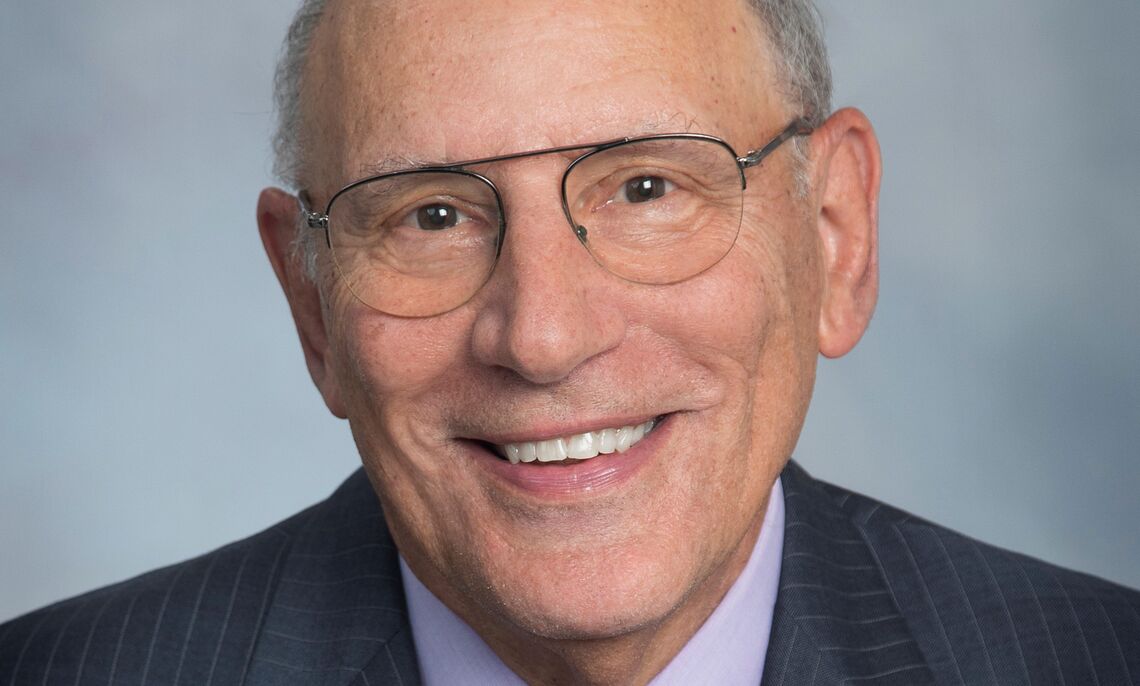F&M Stories
'69 Alumnus Introduces Students to Actuarial Field
An honors student at Franklin & Marshall College, Roy Goldman graduated in 1969 with plans to become a mathematics professor. He earned his doctorate, and taught for a bit, but instead of a career in teaching, he joined a rare breed of professionals — the actuaries.
"It's definitely an appropriate career," Goldman said. He recently spoke to students at a virtual discussion about what actuaries do and how to become one. The discussion was organized by F&M's Associate Professors of Mathematics Christina Weaver and Danel Draguljic.
Weaver said having professionals in mathematics-related fields come in for career talks, "is a really nice opportunity for students to hear what things are like beyond our undergraduate classes."
Goldman became the 72nd president of the Society of Actuaries in 2020 and now serves as its immediate past president. He said, "One doesn't need a Ph.D in mathematics to be an actuary," but certainly some math skills. "A liberal arts education is perfect for a successful career."
"You can be way ahead of me," Goldman told the students. "I didn't hear about the actuarial career until my fourth year of graduate school." He was a chief actuary and/or chief financial officer for two national insurers, Humana and Prudential's Group Business Unit, and two regional health insurers.
After teaching in Brazil for a year and then at Rutgers University, he took an interest in his wife's career choice. She was training to become an actuary.
"I liked the fact that there were statistics, finance, investments, economics, law, taxes," Goldman said. "As I tell individuals, the easiest thing for me to do in my jobs as a chief actuary or a chief financial officer was to figure out what the right answer is. It's a lot harder to convince everybody else that that's the right answer."
An actuary needs to reason well, understand the audience he or she is trying to convince, "and be able to speak and write persuasively, and that's what you learn at F&M," he said.
What does an actuary do? "What we do is apply mathematical, statistical, financial and, very importantly, behavioral economic theories, to build models, evaluate risk, and perform analyses to create strategy and guide the decision-making process," Goldman said, reading off one of his slides.
He cited the Society of Actuaries newest mission statement: "Actuaries are individuals who derive solutions to manage life's financial risks."
Actuaries design products from automobile insurance and health care benefits to workers compensation and climate change to cyber security and life insurace. It is a specialized profession that does not have many members, Goldman said.
"There are probably about 100,000 people in the world who call themselves actuaries, which, if you look up a profession like accounting or medicine or law, that's really a tiny number," he said. "Whatever career you go into, even if it's not a STEM (science, technology, engineering, math) career, I think the more mathematics that you have under your belt, the better it is."
Related Articles
December 19, 2025
2005 Graduate’s Continuous Philanthropic Support Provides Opportunities for New Generations of Students
Leadership expert and author John C. Maxwell wrote, “Small disciplines repeated with consistency lead to great achievements gained slowly over time.” Bethany Weise ’05 exemplifies that idea with 21 consecutive years of gifts to the Franklin & Marshall Fund.
December 5, 2025
“We Made Something out of Nothing”: Remembering More Than 50 Years of F&M Women’s Squash
F&M women's squash pioneer Elizabeth Mackey ’75 looks back on the program more than 50 years later.
December 2, 2025
Publishing Alumni Share Postgraduate Paths
Learn how F&M shaped the professional lives of four alumni working in publishing. “Franklin & Marshall was the only school where I felt like creative writing was important,” said Rebecca (Bolstein) Chen ’14, editor at TOKYOPOP.

